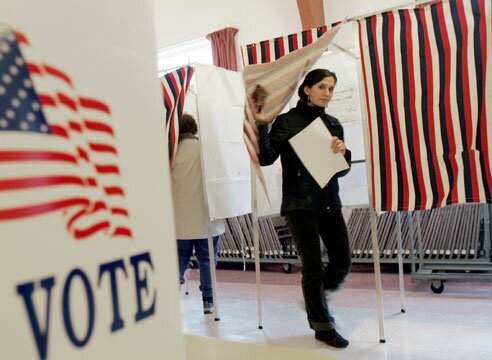
In what could be the brush fire that ultimately engulfs an entire forest, New Jersey voters turned out in surprising numbers yesterday to defeat proposed school budgets throughout the state. With reported turnouts of more than double the previous year, New Jerseyans gave a resounding “No” to more than 55% of all proposed budgets statewide. In some counties, such as Somerset and Hunterdon, virtually all proposed school budgets were defeated.
In a typical year, voters approve approximately 70% of all school budgets. This year, however, concerned by escalating property taxes (among the nation’s highest) and a continuing economic downturn, voters eschewed the pleas of local school boards and officials. Additionally, the election results send a clear message to elected officials at the local, county, and state levels that the New Jersey populace agrees with Governor Chris Christie that it is time to tackle the heretofore untamed monster of rising salaries and costs associated with providing benefits and pensions to educators and government workers that threatens to rob future generations of their American dreams.

Pension and health insurance obligations for retirees from school districts, police departments, municipalities, and county and state government loom as drags on future economic growth and shackles on future taxpaying citizens of New Jersey. To make matters worse, many of these same people may choose ultimately to leave the State after they retire, selecting for their residences low-tax states that have been more fiscally responsible and have not mortgaged their futures on unfunded pensions and other liabilities.
When the bill on these future liabilities comes due, the taxpaying residents and businesses of this State – if there are any – will certainly be less than happy that decades past of elected, appointed, and hired officials and leaders have squandered tens of billions of taxpayer dollars for fear of being branded as anti-education, anti-law enforcement, anti-environment, or any of a number of other “sacred cows” that have been created in this State and elsewhere. Those future residents will wish that previous holders of the public trust had taken on the unions and entrenched interests that too often dictate policy in our State, reduced expenditures, eliminated excesses, and funded mandates.
The reality is that there is but a tenuous connection between dollars spent on taxpayer-funded programs and results. If spending money could produce results, the schools in Newark, Elizabeth, and Camden, to name but a few districts, would be producing world-class scholars. Sadly, taxpayer dollars are to those who spend them nothing more than “other people’s money.” A significant proportion of school budgets past have been spent on infrastructure including artificial turf playing fields and other athletic facilities that rival those in professional sports. While such facilities may be desirable, their impact on student education is dubious. School administrators and government officials at all levels need to treat such expenditures as if the funds used were their own. Were that the case, we would surely witness a level of fiscal responsibility heretofore unseen in our State.
And so, as taxpayers we can hope with some justification that the 2010 school budget elections may provide the spark to help us begin to retake control of our shared financial destiny. Sweeping changes are needed, as well as leaders with the fortitude to propose and oversee them. It is not, however, easy or painless to oppose a “sacred cow,” much less the herd with which we are faced. If we as a State do not seize this opportunity, however, many of us will be among the retired teachers, police officers, and New Jersey government employees who relocate to Delaware, North Carolina, or another state that has been more diligent with its taxpayers’ money.



 .
.